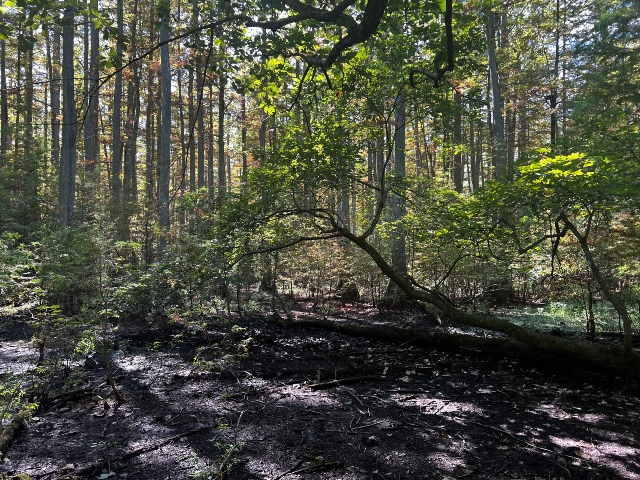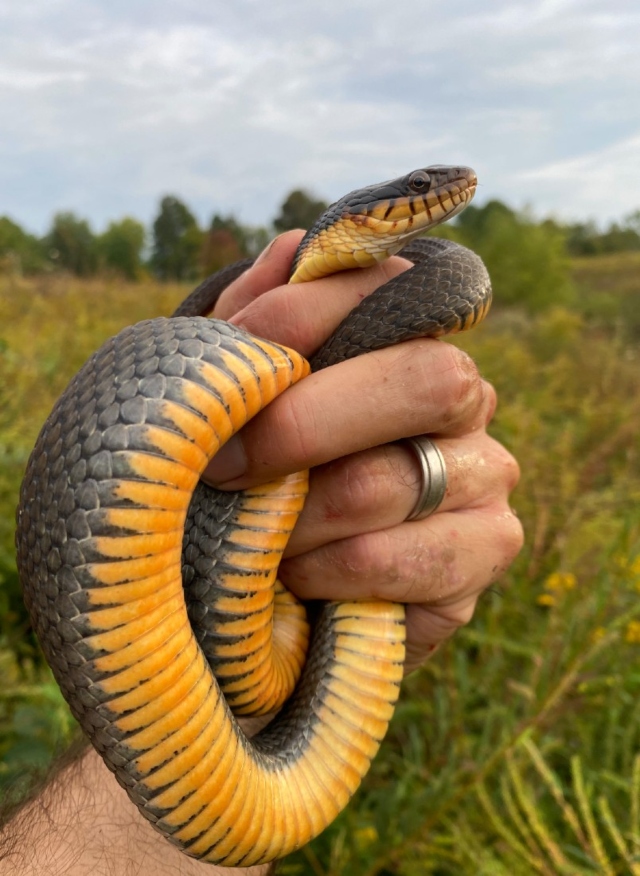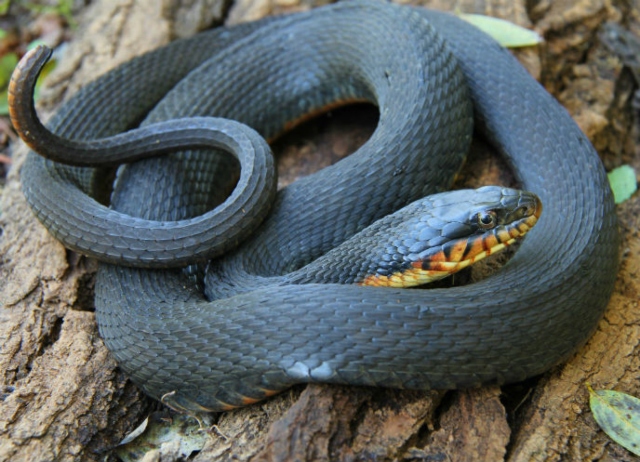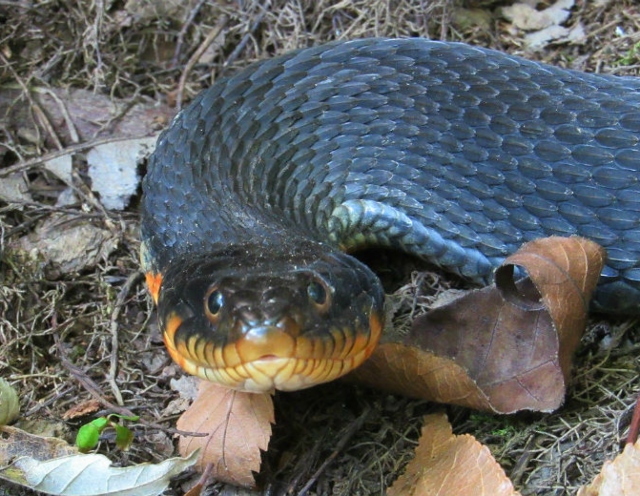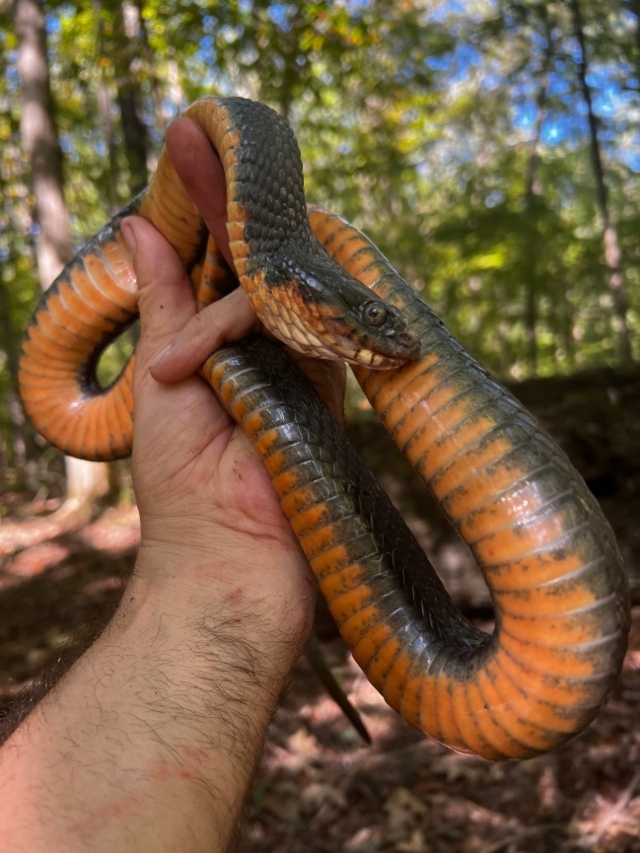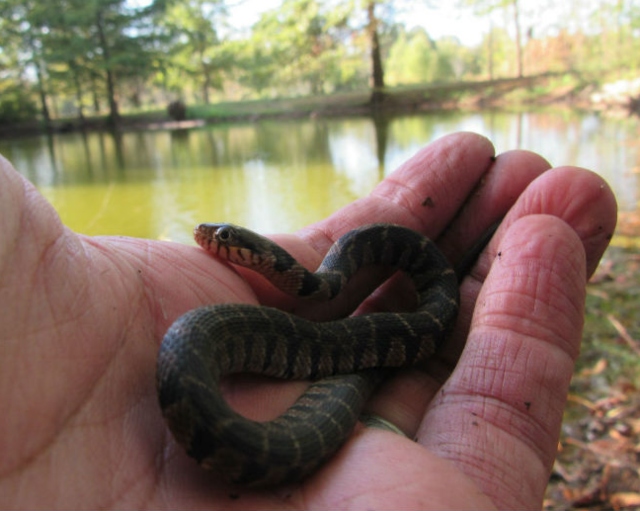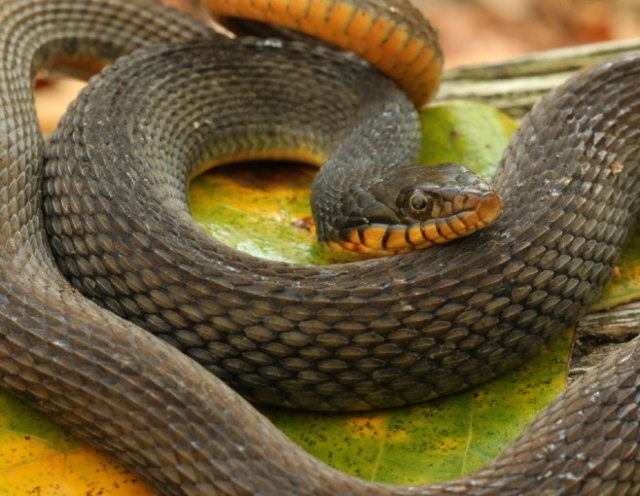I often find this cool creature while visiting southern Illinois. Copperbelly Water Snakes have a solid, dark (usually black) back with a bright orange-red underside that is visible from a side view. Adults range from three to five feet in length.
The snake’s habitat is permanent, vegetated, shallow-edged wetlands mixed with continuous swamp-forest and woodlots. Copperbelly Water Snakes usually are active between April and late October or early November. After emergence from their hibernacula sometime in April or early May, these snakes migrate through forested or vegetated corridors to shallow ponds, lakes, shrub swamps and other shallow wetlands.
Copperbelly Water Snakes require large landscape complexes comprised of diverse suitable wetland habitats and surrounding upland habitats. They are considered one of the most terrestrial water snakes, spending considerable amounts of time away from water.
These snakes are found in two distinct population segments in the United States – the north and south. The northern population is federally listed as “threatened,” and its range includes southern Michigan, northwestern Ohio and northeastern Indiana. Another population of these snakes lives in southwestern Indiana and adjacent Illinois and Kentucky, and southeastern Indiana. That population is not listed as threatened by the USFWS.
Frogs and tadpoles are the Copperbelly Water Snake’s main prey. This species hunts on land and in shallow water and favors seasonal wetlands where frogs, toads and salamanders lay their eggs. In addition to a large number of prey items, the gradual drying of these wetlands provides excellent feeding conditions as tadpoles become stranded.
Copperbelly Water Snakes give birth to live offspring. Newborns are about six inches in total length, and in a year are about 18 inches in total length. They are patterned with two-toned, reddish-brown, saddle-like crossbanding with reddish-orange chins and lips. Their bellies are light orange. Babies are cryptic, camouflaged, secretive, and hardly ever seen.
This snake is always a fun find for me when visiting southern Illinois.

